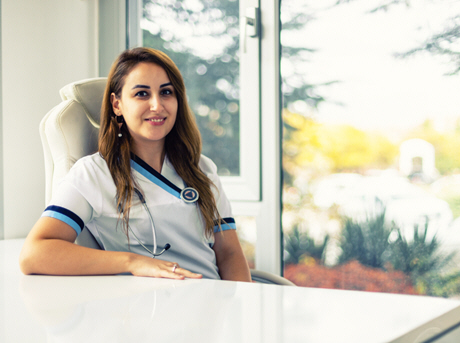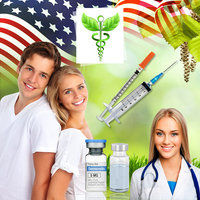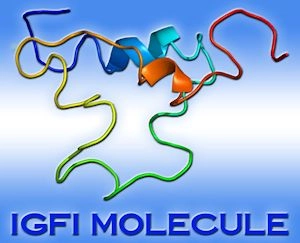Introduction to Primary Hypogonadism
Primary hypogonadism, also known as testicular failure, is a medical condition that affects the testes' ability to produce sufficient testosterone and sperm. This condition is of particular concern among American men, as it can significantly impact reproductive health and overall well-being. Understanding the causes, symptoms, and treatment options for primary hypogonadism is crucial for maintaining optimal health and fertility.
Causes and Risk Factors
Primary hypogonadism can arise from various underlying causes, including genetic disorders such as Klinefelter syndrome, undescended testes, mumps orchitis, and certain autoimmune diseases. Additionally, exposure to toxins, radiation therapy, and chemotherapy can also contribute to the development of this condition. American men with a family history of primary hypogonadism or those who have undergone treatments that affect the testes are at an increased risk of developing this disorder.
Symptoms and Diagnosis
The symptoms of primary hypogonadism can vary widely among individuals but often include decreased libido, erectile dysfunction, infertility, fatigue, and loss of muscle mass. In some cases, men may also experience breast tissue growth (gynecomastia) and a decrease in beard and body hair growth. To diagnose primary hypogonadism, healthcare providers typically conduct a thorough physical examination, assess medical history, and perform blood tests to measure testosterone and gonadotropin levels. Imaging studies, such as ultrasound or MRI, may also be used to evaluate the testes and identify any structural abnormalities.
Impact on Reproductive Health
Primary hypogonadism can have a profound impact on the reproductive health of American men. The condition often leads to reduced sperm production, which can result in infertility. Men with primary hypogonadism may require assisted reproductive technologies, such as intrauterine insemination (IUI) or in vitro fertilization (IVF), to achieve pregnancy. Moreover, the psychological impact of infertility can lead to stress, anxiety, and relationship challenges, further emphasizing the importance of addressing this condition promptly.
Treatment Options
The primary goal of treating primary hypogonadism is to restore testosterone levels to normal and improve fertility. Testosterone replacement therapy (TRT) is a common treatment option that can help alleviate symptoms such as low libido, fatigue, and loss of muscle mass. However, TRT can further suppress sperm production, so it is not suitable for men who wish to preserve their fertility. In such cases, alternative treatments, such as gonadotropin therapy or selective estrogen receptor modulators (SERMs), may be considered to stimulate sperm production while maintaining adequate testosterone levels.
Lifestyle Modifications and Support
In addition to medical interventions, American men with primary hypogonadism can benefit from lifestyle modifications to support their overall health and well-being. Regular exercise, a balanced diet, and stress management techniques can help improve energy levels, mood, and sexual function. Furthermore, seeking support from healthcare professionals, fertility specialists, and mental health providers can be invaluable in navigating the challenges associated with primary hypogonadism and infertility.
Conclusion
Primary hypogonadism is a significant health concern for American men, as it can profoundly impact reproductive health and quality of life. By understanding the causes, symptoms, and treatment options for this condition, men can take proactive steps to manage their health and fertility. Early diagnosis, appropriate medical interventions, and lifestyle modifications can help American men with primary hypogonadism lead fulfilling lives and achieve their reproductive goals.
Contact Us For A Fast And Professional Response

- Primary Hypogonadism in American Males: Overcoming Stigma and Enhancing Treatment [Last Updated On: March 15th, 2025] [Originally Added On: March 15th, 2025]
- Primary Hypogonadism in Aging Men: Symptoms, Diagnosis, and Treatment Options [Last Updated On: March 17th, 2025] [Originally Added On: March 17th, 2025]
- Managing Primary Hypogonadism and Diabetes: Challenges and Strategies for American Men [Last Updated On: March 18th, 2025] [Originally Added On: March 18th, 2025]
- Primary Hypogonadism and Obesity Link: Impact and Management in American Men [Last Updated On: March 18th, 2025] [Originally Added On: March 18th, 2025]
- Primary Hypogonadism: Symptoms, Diagnosis, and Advocacy for American Men's Health [Last Updated On: March 18th, 2025] [Originally Added On: March 18th, 2025]
- Managing Primary Hypogonadism: Nutritional Strategies to Boost Testosterone in American Males [Last Updated On: March 19th, 2025] [Originally Added On: March 19th, 2025]
- Exercise Strategies for Managing Primary Hypogonadism in American Males [Last Updated On: March 19th, 2025] [Originally Added On: March 19th, 2025]
- Primary Hypogonadism: Impact, Diagnosis, and Management Strategies for American Men [Last Updated On: March 19th, 2025] [Originally Added On: March 19th, 2025]
- Primary Hypogonadism: Support Networks Crucial for Emotional and Treatment Guidance [Last Updated On: March 19th, 2025] [Originally Added On: March 19th, 2025]
- Innovative Therapies Transforming Primary Hypogonadism Treatment in American Males [Last Updated On: March 20th, 2025] [Originally Added On: March 20th, 2025]
- Primary Hypogonadism and Sleep: Impacts and Management Strategies for American Men [Last Updated On: March 20th, 2025] [Originally Added On: March 20th, 2025]
- Primary Hypogonadism in American Males: Current Treatments and Future Innovations [Last Updated On: March 21st, 2025] [Originally Added On: March 21st, 2025]
- Managing Primary Hypogonadism: Importance of Regular Check-ups for American Males [Last Updated On: March 21st, 2025] [Originally Added On: March 21st, 2025]
- Navigating the Emotional Journey of Primary Hypogonadism in American Males [Last Updated On: March 22nd, 2025] [Originally Added On: March 22nd, 2025]
- Navigating Primary Hypogonadism: Diagnosis, Treatment, and Healthcare Advocacy in the U.S. [Last Updated On: March 22nd, 2025] [Originally Added On: March 22nd, 2025]
- Primary Hypogonadism: Impact on Work and Strategies for Productivity in American Men [Last Updated On: March 22nd, 2025] [Originally Added On: March 22nd, 2025]
- American Males' Resilience and Strength with Primary Hypogonadism: Personal Stories and Support [Last Updated On: March 23rd, 2025] [Originally Added On: March 23rd, 2025]
- Primary Hypogonadism's Impact on Muscle Mass in American Males: Mechanisms and Interventions [Last Updated On: March 23rd, 2025] [Originally Added On: March 23rd, 2025]
- Primary Hypogonadism: Understanding, Diagnosing, and Treating Testicular Failure in American Men [Last Updated On: March 23rd, 2025] [Originally Added On: March 23rd, 2025]
- Primary Hypogonadism: Symptoms, Diagnosis, and Management in American Men [Last Updated On: March 23rd, 2025] [Originally Added On: March 23rd, 2025]
- Primary Hypogonadism in American Men: Causes, Diagnosis, and Holistic Management Strategies [Last Updated On: March 24th, 2025] [Originally Added On: March 24th, 2025]
- Primary Hypogonadism: Impact on American Men's Social Life and Well-being [Last Updated On: March 24th, 2025] [Originally Added On: March 24th, 2025]
- Primary Hypogonadism in American Males: Causes, Impacts, and Management Strategies [Last Updated On: March 24th, 2025] [Originally Added On: March 24th, 2025]
- Primary Hypogonadism: Causes, Symptoms, and Treatment Options for American Men [Last Updated On: March 24th, 2025] [Originally Added On: March 24th, 2025]
- Primary Hypogonadism: Diagnosis, Impact, and Management in American Men [Last Updated On: March 24th, 2025] [Originally Added On: March 24th, 2025]
- Managing Primary Hypogonadism: Testosterone Therapy and Lifestyle Strategies for American Men [Last Updated On: March 24th, 2025] [Originally Added On: March 24th, 2025]
- Managing Primary Hypogonadism: Education, Treatment, and Support for American Males [Last Updated On: March 24th, 2025] [Originally Added On: March 24th, 2025]
- Primary Hypogonadism: Impacts on Body Image and Holistic Management Strategies [Last Updated On: March 24th, 2025] [Originally Added On: March 24th, 2025]
- Primary Hypogonadism in American Males: The Vital Role of Family Support [Last Updated On: March 25th, 2025] [Originally Added On: March 25th, 2025]
- Community Support Enhances Life for Men with Primary Hypogonadism [Last Updated On: March 25th, 2025] [Originally Added On: March 25th, 2025]
- Primary Hypogonadism's Emotional Impact on American Males: Diagnosis, Treatment, and Support [Last Updated On: March 25th, 2025] [Originally Added On: March 25th, 2025]
- Genetic Testing for Primary Hypogonadism: Diagnosis and Management in American Males [Last Updated On: March 25th, 2025] [Originally Added On: March 25th, 2025]
- Primary Hypogonadism's Impact on Physical Activity in American Males [Last Updated On: March 25th, 2025] [Originally Added On: March 25th, 2025]
- Economic Impact of Primary Hypogonadism on American Men: Costs and Management Strategies [Last Updated On: March 26th, 2025] [Originally Added On: March 26th, 2025]
- Primary Hypogonadism: Advocacy and Research Needs for American Men's Health [Last Updated On: March 26th, 2025] [Originally Added On: March 26th, 2025]
- Primary Hypogonadism's Impact on Self-Esteem in American Males: Awareness and Treatment [Last Updated On: March 26th, 2025] [Originally Added On: March 26th, 2025]
- Nutritionists' Vital Role in Managing Primary Hypogonadism in American Males [Last Updated On: March 26th, 2025] [Originally Added On: March 26th, 2025]
- Primary Hypogonadism: Symptoms, Early Intervention, and Treatment Options for American Men [Last Updated On: March 26th, 2025] [Originally Added On: March 26th, 2025]
- Primary Hypogonadism in American Men: The Vital Role of Peer Support [Last Updated On: March 26th, 2025] [Originally Added On: March 26th, 2025]
- Primary Hypogonadism: Symptoms, Diagnosis, and Management in the U.S. Healthcare System [Last Updated On: March 26th, 2025] [Originally Added On: March 26th, 2025]
- Primary Hypogonadism: Diagnosis, Specialists, and Treatment for American Men [Last Updated On: March 27th, 2025] [Originally Added On: March 27th, 2025]
- Diagnosing Primary Hypogonadism in American Males: Challenges and Solutions [Last Updated On: March 27th, 2025] [Originally Added On: March 27th, 2025]
- Primary Hypogonadism: Impacts on American Males' Careers and Strategies for Resilience [Last Updated On: March 27th, 2025] [Originally Added On: March 27th, 2025]
- Primary Hypogonadism in American Males: Symptoms, Effects, and Management Strategies [Last Updated On: March 27th, 2025] [Originally Added On: March 27th, 2025]
- Managing Primary Hypogonadism in American Men: Diagnosis, Treatment, and Lifestyle Strategies [Last Updated On: March 27th, 2025] [Originally Added On: March 27th, 2025]
- Primary Hypogonadism: Understanding Treatments and Managing Side Effects in American Males [Last Updated On: March 27th, 2025] [Originally Added On: March 27th, 2025]
- Primary Hypogonadism: Impact on Mental Health and Role of Professionals [Last Updated On: March 27th, 2025] [Originally Added On: March 27th, 2025]
- Primary Hypogonadism in American Men: Prevalence, Management, and Future Research [Last Updated On: March 28th, 2025] [Originally Added On: March 28th, 2025]
- Primary Hypogonadism: Emotional Support Strategies for American Men [Last Updated On: March 29th, 2025] [Originally Added On: March 29th, 2025]
- Primary Hypogonadism: Challenges and Solutions in Male Family Planning [Last Updated On: March 30th, 2025] [Originally Added On: March 30th, 2025]
- Exercise Physiologists' Role in Managing Primary Hypogonadism in American Males [Last Updated On: March 30th, 2025] [Originally Added On: March 30th, 2025]
- Managing Primary Hypogonadism: Lifestyle Strategies for American Men's Health [Last Updated On: April 2nd, 2025] [Originally Added On: April 2nd, 2025]
- Managing Primary Hypogonadism: Strategies for Stress and Anxiety in American Men [Last Updated On: April 2nd, 2025] [Originally Added On: April 2nd, 2025]
- Endocrinologists' Vital Role in Managing Primary Hypogonadism in American Males [Last Updated On: April 3rd, 2025] [Originally Added On: April 3rd, 2025]
- Overcoming Psychological Barriers to Primary Hypogonadism Treatment in American Males [Last Updated On: April 3rd, 2025] [Originally Added On: April 3rd, 2025]
- Managing Primary Hypogonadism: Financial Assistance Options for American Men [Last Updated On: April 6th, 2025] [Originally Added On: April 6th, 2025]
- Primary Hypogonadism: Impacts on Social Connections and Strategies for Support [Last Updated On: April 8th, 2025] [Originally Added On: April 8th, 2025]
- Managing Primary Hypogonadism: Education's Role in American Males' Health [Last Updated On: April 9th, 2025] [Originally Added On: April 9th, 2025]
- Support Groups: Vital for American Males with Primary Hypogonadism [Last Updated On: April 9th, 2025] [Originally Added On: April 9th, 2025]
- Managing Primary Hypogonadism in American Men: A Multidisciplinary Approach [Last Updated On: April 9th, 2025] [Originally Added On: April 9th, 2025]
- Managing Primary Hypogonadism: Symptoms, Diagnosis, and Treatment for American Men [Last Updated On: April 9th, 2025] [Originally Added On: April 9th, 2025]
- Technology Revolutionizes Primary Hypogonadism Management in American Men [Last Updated On: April 10th, 2025] [Originally Added On: April 10th, 2025]
- Primary Hypogonadism: Diagnosis, Treatment, and Lifestyle Management for American Men [Last Updated On: April 11th, 2025] [Originally Added On: April 11th, 2025]
- Primary Hypogonadism: Understanding, Managing, and Thriving for American Men [Last Updated On: April 12th, 2025] [Originally Added On: April 12th, 2025]
- Managing Primary Hypogonadism: Challenges and Strategies for American Males [Last Updated On: April 12th, 2025] [Originally Added On: April 12th, 2025]
- Mental Health Apps: A Vital Support for American Males with Primary Hypogonadism [Last Updated On: April 13th, 2025] [Originally Added On: April 13th, 2025]
- Primary Hypogonadism: Symptoms, Causes, and Management Strategies for American Males [Last Updated On: April 13th, 2025] [Originally Added On: April 13th, 2025]
- Primary Hypogonadism: Workplace Challenges and Advocacy Strategies for American Men [Last Updated On: April 15th, 2025] [Originally Added On: April 15th, 2025]
- Primary Hypogonadism's Impact on American Men's Hobbies and Leisure Activities [Last Updated On: April 15th, 2025] [Originally Added On: April 15th, 2025]
- Managing Primary Hypogonadism: The Crucial Role of Regular Follow-Ups in Men's Health [Last Updated On: April 17th, 2025] [Originally Added On: April 17th, 2025]
- Physical Therapy's Role in Managing Primary Hypogonadism in American Males [Last Updated On: April 18th, 2025] [Originally Added On: April 18th, 2025]
- Managing Primary Hypogonadism: Building Your Comprehensive Healthcare Team [Last Updated On: April 18th, 2025] [Originally Added On: April 18th, 2025]
- Managing Primary Hypogonadism: Personalized Care for American Men's Health [Last Updated On: April 19th, 2025] [Originally Added On: April 19th, 2025]
- Traveling with Primary Hypogonadism: Challenges and Management Strategies for American Males [Last Updated On: April 19th, 2025] [Originally Added On: April 19th, 2025]
- Dietitians' Role in Managing Primary Hypogonadism in American Males Through Nutrition [Last Updated On: April 19th, 2025] [Originally Added On: April 19th, 2025]

















